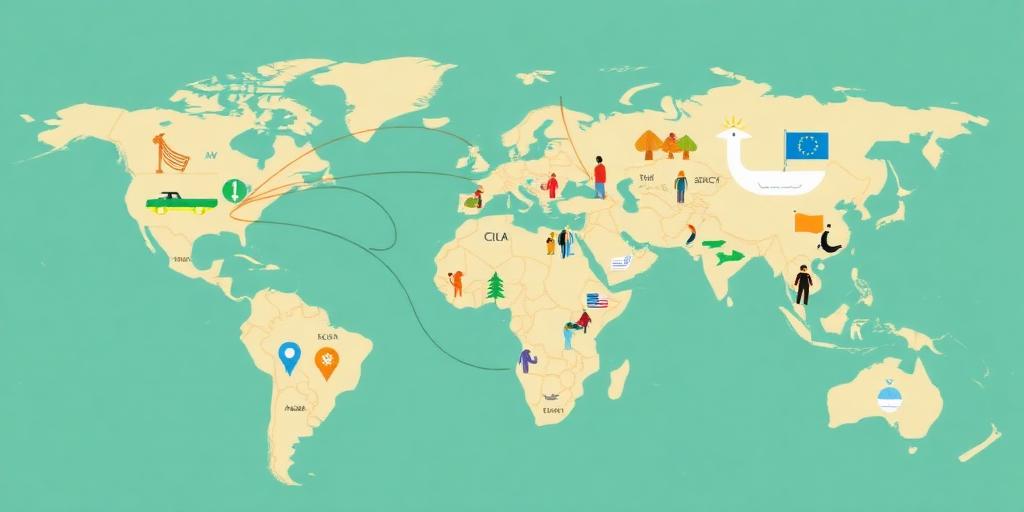The Multifaceted Role of International Aid in Shaping Relations
International aid plays a pivotal role in shaping relations between nations. It is a complex instrument that extends beyond mere financial assistance, encompassing humanitarian, developmental, and political dimensions. Understanding its multifaceted nature is crucial for appreciating its impact on global dynamics.
Humanitarian Aid: A Foundation of Empathy
At its core, international aid often begins with humanitarian assistance. When natural disasters, conflicts, or health crises strike, nations and organizations rally to provide immediate relief. This form of aid—provision of food, shelter, medical supplies—addresses immediate needs and establishes a foundation of empathy and cooperation. For instance, following the 2010 Haiti earthquake, global aid efforts underscored the interconnectedness of nations in times of crisis.
Developmental Aid: Investing in Long-Term Stability
Developmental aid focuses on long-term sustainable growth. It involves investments in education, infrastructure, healthcare, and governance. Such aid aims to reduce poverty, improve living standards, and foster stable societies. The Marshall Plan, implemented post-World War II, exemplifies how developmental aid can reconstruct economies and prevent future conflicts. Today, similar initiatives target developing nations, fostering trade, innovation, and self-sufficiency.
Political Aid: Navigating Diplomacy and Influence
Political aid serves strategic interests, bolstering alliances, promoting democracy, and advancing foreign policy objectives. This type of aid is often contingent on political or economic reforms, aligning recipient countries with donor nations' interests. The United States’ aid to countries in the Middle East, for example, is intertwined with geopolitical strategies and security concerns.
The Complexities and Challenges
Despite its noble intentions, international aid is not without challenges. Aid dependency, corruption, and inefficiency can undermine its effectiveness. Additionally, the imposition of conditions by donor countries can infringe upon the sovereignty of recipient nations, leading to resentment and strained relationships. To mitigate these issues, transparency, accountability, and local ownership are crucial.
Impact on International Relations
International aid profoundly shapes diplomatic relations. It fosters alliances, influences policy decisions, and enhances a nation’s soft power. Nations providing substantial aid often gain diplomatic leverage and goodwill, strengthening their global standing. Conversely, countries perceived as using aid for ulterior motives may face criticism and distrust.
Conclusion
International aid is a powerful tool that influences relations between nations in multifaceted ways. While humanitarian, developmental, and political aid each have distinct objectives, their collective impact shapes the global landscape. Addressing the challenges associated with aid delivery is essential to ensure its effectiveness and promote equitable, mutually beneficial relationships between donor and recipient nations.









